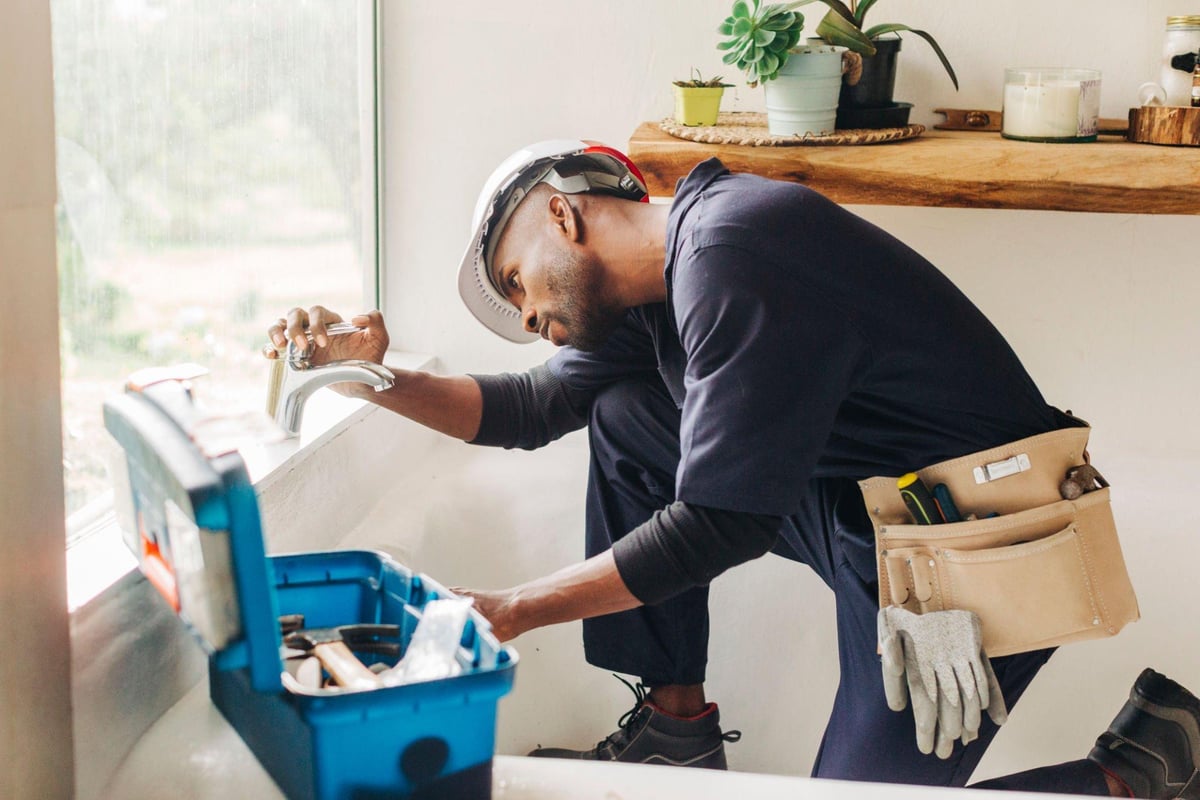
No cost info

Financial aid (may be available)

Financial aid (may be available)

Financial aid (may be available)

$2,245 total
Plumbing Apprentices who seek to become licensed as journeyman plumbers are required to complete 6,800-hours of on-the-job practical hands-on-training and complete 550-hours of education.
Tier-1 classes DO NOT require an apprentice license and are open to all persons who are interested in attending and exploring a career path in the plumbing/gas-fitting trade.
No cost info
Plumbers repair and install the pipes that transport fluids in and out of our businesses or homes. They also repair and install fixtures such as toilets, bathtubs, water heaters, and sinks. Plumbers are in high demand all over the US. Because the current plumbing professionals are slowly approaching retirement age, the industry faces a severe shortage of qualified plumbers. Furthermore, the aging buildings that need replacement or maintenance of their plumbing systems are expected to keep the demand rising into the future. If you enjoy solving complex problems and have strong mechanical skills, then our online plumbing training course will give you the basics for an excellent career as a professional plumber.
No cost info
Begin a career in the plumbing field with this hands-on training course. You will learn about construction safety; construction math; plumbing drawings; plastic, copper, cast-iron, and carbon steel pipe and fittings; plumbing fixtures; water distribution systems; and drain, waste and vent systems. The course includes OSHA 30 hour certification and 10-hour Site Safety Training certification and uses the industry recognized National Center for Construction Education & Research (NCCER) Construction Core and Plumbing Level 1 curricula. Tuition includes cost of books and materials. Payment plan available. Hybrid program with didactic training online and hands-on training to be held at Positive Workforce, Inc., 109 East 125th Street, New York, NY. For more information email [email protected].
No cost info
As a graduate from our online Plumbing training course, you will be familiar with the procedures and techniques for installing and maintaining these systems. Whether you live in a big city, small town, or rural area, now is the time to train to start making money in one of the most secure industries in the nation. New construction of commercial and residential buildings, along with the need to maintain and repair existing plumbing systems will increase the demand for qualified plumbers.
$1,239 total
Chicago's thriving job market offers promising opportunities for aspiring plumbers. With a growing demand for skilled tradespeople, individuals looking to become a plumber can find a variety of classes available near them to help them achieve their goals. The plumber salary in Chicago can be quite lucrative, making it an attractive career path for those seeking a stable and well-compensated profession.

A plumber is a skilled tradesperson responsible for installing, maintaining, and repairing various plumbing systems, including pipes, fixtures, and appliances. Plumbers play a crucial role in ensuring the proper functioning of water, waste, and gas systems in residential, commercial, and industrial settings.
To become a plumber in Chicago, individuals typically need to complete a formal training program, which can include a combination of classroom instruction and hands-on experience. Many aspiring plumbers choose to pursue an apprenticeship program, which combines on-the-job training with related technical instruction. Alternatively, they may attend a vocational school or community college to obtain a plumbing certificate or associate's degree.
The fastest path to becoming a plumber in Chicago is through an accelerated training program. These programs are designed to provide students with the necessary skills and knowledge to become licensed plumbers in a shorter timeframe, often within a year or less. These intensive programs cover the same curriculum as traditional plumbing programs but with a more condensed schedule.
Chicago offers a variety of plumber classes to meet the needs of aspiring tradespeople. Here are a few examples:
Plumbing Apprenticeship Program at the Plumbers Local Union 130 U.A.: This 5-year program combines on-the-job training with classroom instruction, covering topics such as pipe fitting, welding, and code compliance. The program is tuition-free, and participants earn a wage while they learn.
Plumbing Technology Program at City Colleges of Chicago: This 2-year associate's degree program provides a comprehensive education in plumbing systems, including installation, repair, and maintenance. Students gain hands-on experience in the program's well-equipped labs.
Plumbing Certificate Program at Worsham College of Mortuary Science: This 9-month program prepares students for a career in plumbing by covering topics such as pipe fitting, fixture installation, and code regulations. The program includes both classroom and practical training.
While in-person classes are the most common option, Chicago also offers some online and free plumber training opportunities:
Online Plumbing Courses: Several online platforms, such as Udemy and Coursera, offer self-paced, online plumbing courses that cover a range of topics, from basic plumbing systems to advanced troubleshooting techniques. These courses can be a convenient option for those who prefer a more flexible learning environment.
Free Plumbing Workshops: Local hardware stores, such as Home Depot and Lowe's, often host free plumbing workshops that provide hands-on training and guidance on common plumbing tasks. These workshops can be a great way for aspiring plumbers to gain practical experience without the cost of a formal training program.
In Chicago, plumbers must obtain a license to practice their trade. The certification process typically involves passing a comprehensive exam that covers topics such as plumbing code, safety, and installation techniques. Aspiring plumbers may also need to complete a certain number of hours of on-the-job training or an apprenticeship program before they can apply for a license.
Chicago's thriving construction and real estate sectors, coupled with its aging infrastructure, create a strong demand for skilled plumbers. Plumbers in Chicago can find employment opportunities with a variety of employers, including:
The job environment for plumbers in Chicago is generally favorable, with a steady stream of projects and a growing need for skilled tradespeople.
Becoming a plumber in Chicago can be a rewarding career path, offering job security, competitive wages, and the opportunity to work on a wide range of projects. With a variety of training options available, from apprenticeship programs to accelerated classes, aspiring plumbers can find the right path to launch their careers in this in-demand field.
Dreambound offers a window into various career paths, so if you're considering a shift in your career, browse through these articles:
Dreambound's platform allows prospective students to find the right educational program for them through searching, filtering, and connecting with our extensive selection of career & technical education partners.
Dreambound has over 70 programs across healthcare, technology, business, and industrial trades. This includes programs such as Medical Billing, Cybersecurity, and welding.
Some of our schools offer financial aid for those who qualify. Many others offer payment plans, where you can pay the cost of class over time.
Yes, Dreambound offers many online programs. On Dreambound's search, you can filter by online, in-person, and hybrid (part online, part in-person).
Dreambound is completely free for you to use! We are supported by schools and organizations who pay to advertise on our website, so we can offer all of our career resources for free.